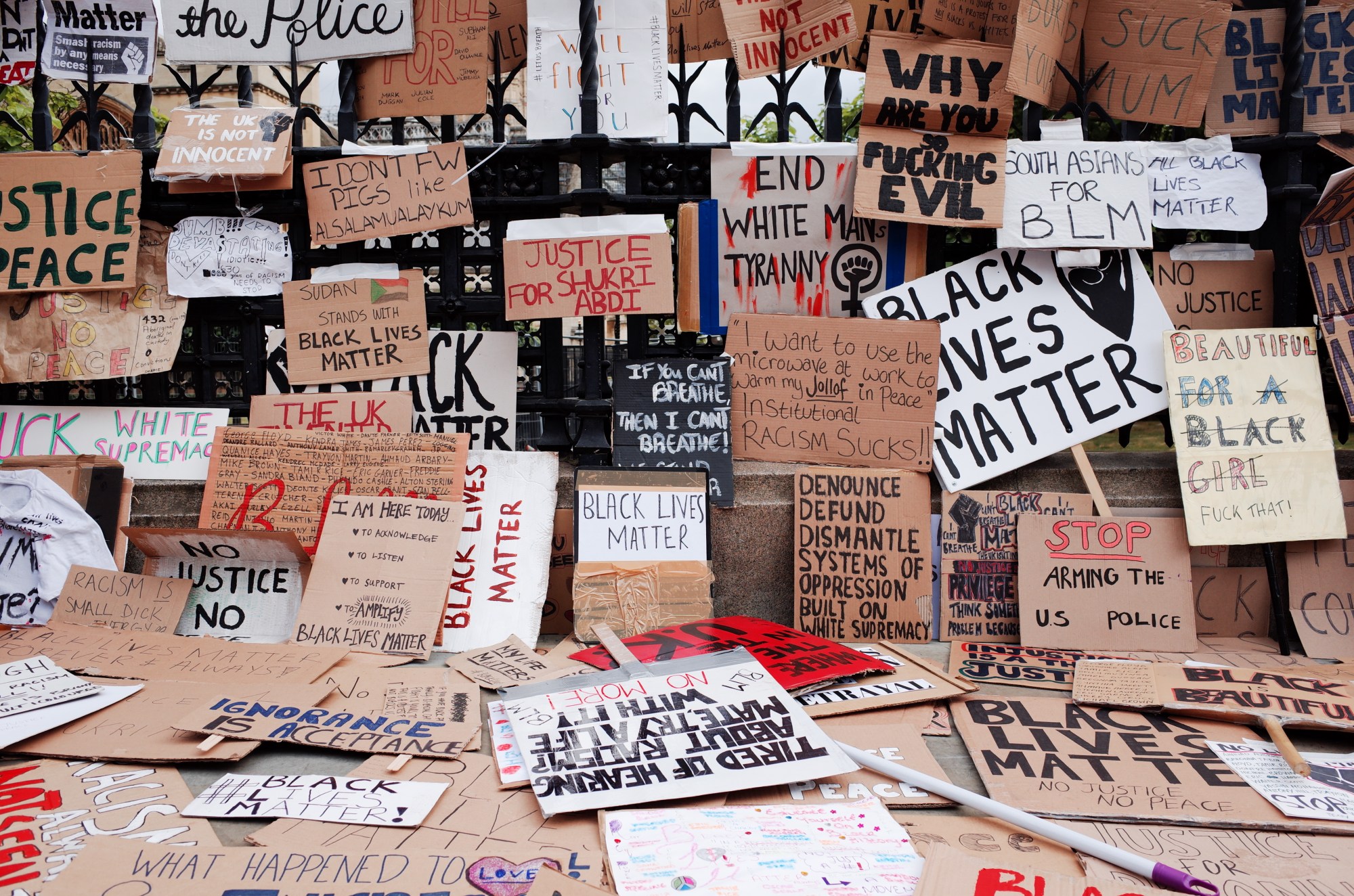Last week, a picture of Black Lives Matter demonstrator Patrick Hutchinson carrying a ‘counter-protester‘ to safety went viral. Some were quick to label the image as a symbol of courage, compassion, hope; to hail Patrick as a ‘hero’. Here was a tall, strong Black man carrying an injured white man over his shoulder to safety, exemplifying, some commented, the intrinsic good of the Black Lives Matter movement. To many of us, however, the image was a reminder: people like Patrick are made human only in such grand acts of valiance and servitude.
This is a recurring trend in the media. When Brandt Jean, the brother of Botham Jean, hugged and forgave his brother’s killer — white patrol officer Amber Guyger — his actions were commended by white commentators, as if Black people were expected to express limitless compassion for their aggressors. When Dale Semper, a Black bank manager wrongfully targeted by the Metropolitan police for money laundering, terrorism and trafficking during a two-year investigation, his ‘happy successful life’ and his mother who has worked for the NHS for 20 years were continually referenced by pundits. Would he have garnered any compassion were he not considered ‘successful’? Would the breaking in of his mother’s flat by police officers be considered as abhorrent had she not dedicated herself to the NHS?
When the July issue of British Vogue chose to celebrate essential workers rather than models, actresses or musicians, I — along with many others — was joyous to see such new bright faces honoured for their work. Anisa Omar, a supermarket assistant (as well as a Black Muslim woman like myself) was one such cover star. Shelf-stackers and checkout operators have never previously been considered ‘key workers’, worthy of our adulation, nor likely will they be when the pandemic passes. Throughout this crisis, we have commended the essential front line workers like Anisa because, in a social distanced world, they make our own lives somewhat tolerable. We celebrated our nurses and Hospital Ward Sisters — like Anisa’s fellow cover star Eunice Ouko — for their heroic work by clapping every Thursday at 8pm.
But when it becomes clear that this same pandemic affects Black and other ethnic minority communities more so than their white counterparts, due to the likelihood of increased risk of infection from living in deprived areas and overcrowded homes, the government faces little pressure to unscrew the shackles of poverty within such communities. Are we happy to celebrate minorities when they save our lives but not to return the favour? The case of railway worker Belly Mujinga — who died of coronavirus days after being spat at by a man claiming to have the virus and whose case was swiftly closed without prosecution — would suggest so.
We celebrate minorities when they are most useful to us, but not when they are just human. Will these same individuals and the millions like them who make up the fabric of Britain be accepted under Home Secretary Priti Patel’s new post-Brexit immigration system, under which they’d be classified as lower-skilled workers? Will the same Black women we clap for, we paint rainbows for, we repost images of, still face a mortality rate five times higher in childbirth compared to white women? Unless there is active change in tackling structural inequality in the UK — boosting living standards, addressing racism and discrimination in all its forms, tackling the gender pay, the pension gap and the disproportionate prevalence of poverty in minority communities — these celebrations of individuals run the risk of being nothing more than empty posturing for social optics.
There is no better way of honouring lives of sacrifice and selflessness than unburdening them of all the elements of inequality that hinder their progression and often their happiness. Until such interrogation takes place, our celebrations make a mockery of their service.
